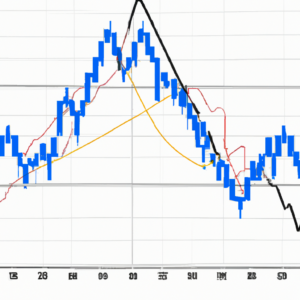
Secure Brokers: Ensuring Safety in Digital Trading
Brokers with Advanced Security Measures
In an era where digital transactions dominate the financial markets, the significance of robust security measures cannot be overstated. Brokers, as intermediaries between traders and the markets, are primary targets for cyberattacks. These entities are entrusted with sensitive information and substantial funds, making them attractive to cybercriminals. This article delves into the advanced security measures brokers are implementing to safeguard their platforms and, by extension, their users’ assets and data.
Understanding the Importance of Cybersecurity in Brokerage
The financial sector has always been a lucrative target for cybercriminals, and as trading shifted from physical floors to digital platforms, the attack vectors multiplied. Cybersecurity in brokerage encompasses the strategies, technologies, and practices designed to protect systems, networks, programs, and data from digital attacks. For investors, selecting a broker with state-of-the-art security measures is as crucial as considering trading fees or platform functionality.
Key Security Measures Adopted by Top Brokers
Brokers are continuously evolving their security protocols to counter new and emerging cyber threats. Here are some of the most effective measures they are deploying:
Two-Factor Authentication (2FA)
2FA adds an additional layer of security by requiring two forms of identification before access is granted. This often combines something the user knows (like a password) with something the user has (such as a code sent to a mobile device).
Advanced Encryption Standards (AES)
Data encryption transforms sensitive information into a code to prevent unauthorized access. AES is a symmetric encryption algorithm widely regarded as virtually unbreakable, ensuring that data in transit and at rest remains secure.
Regular Security Audits
By conducting regular audits, brokers can identify vulnerabilities in their systems and rectify them before they can be exploited. These audits often include penetration testing, where ethical hackers attempt to breach systems to uncover weaknesses.
Data Privacy Measures
Compliance with data protection regulations, such as the General Data Protection Regulation (GDPR) in Europe, is crucial. Brokers must ensure they have policies and tech in place to protect client data from misuse and unauthorized access.
Continual Monitoring for Suspicious Activities
Real-time monitoring tools can detect unusual behaviors or transactions, potentially indicating a cyberattack or attempt. Immediate action can then be taken to prevent or minimize damage.
What to Look for When Choosing a Secure Broker
When selecting a broker, the security features they offer should be at the forefront of a trader’s considerations. Here are some key factors to look for:
Comprehensive Security Protocols
Ensure that the broker has a well-rounded approach to security, including the measures discussed above.
Regulatory Compliance
A broker that adheres to stringent regulatory standards is likely to prioritize client security. Look for brokers regulated by reputable bodies.
Transparency Regarding Security Practices
A trustworthy broker should be open about their security practices and the steps they take to protect your assets and data.
Insurance and Compensation Schemes
Find out if the broker has insurance policies or is part of compensation schemes to protect clients’ funds against theft or bankruptcy.
Conclusion
In the modern financial landscape, security is a paramount concern. Brokers with advanced security measures not only offer protection against cyber threats but also provide a foundation of trust and reliability for their clients. As cyber threats continue to evolve, the onus is on both brokers and traders to remain vigilant and proactive in the pursuit of cybersecurity. Choosing a secure broker is the first step in safeguarding one’s investments and personal information in the digital age of trading.

